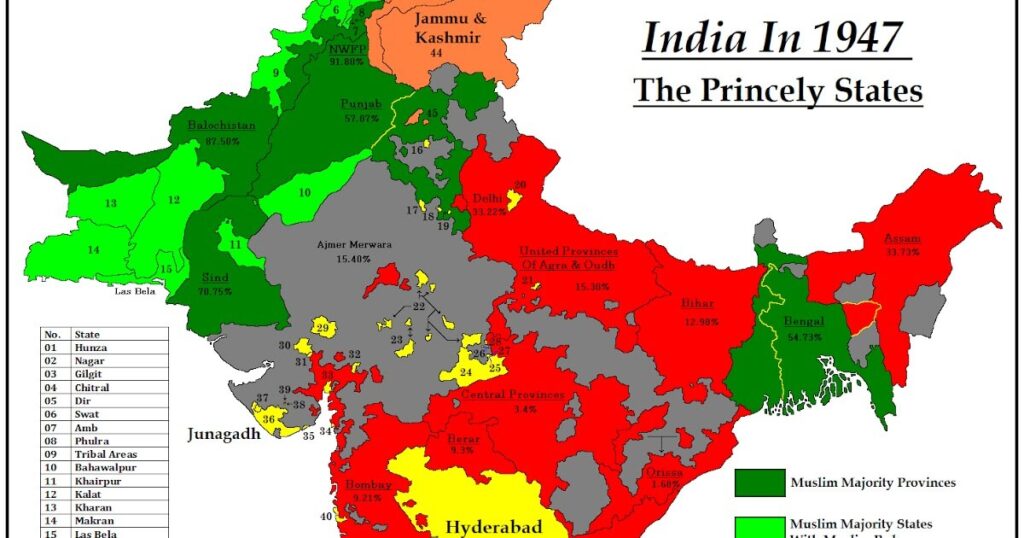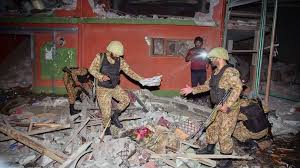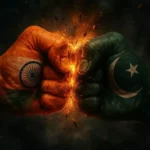Weeks of astriction erupted aboriginal on Wednesday morning back India accursed missiles into Pakistan and Pakistan-controlled Kashmir, ascent the likelihood of a complete aggressive battle amid the nuclear-armed South Asian neighbours.
Pakistani authorities said at atomic 19 people, including a child, were dead overnight, aspersing a “blatant act of war”.
India said its strikes were “focused, abstinent and non-escalatory in nature”, emphasising that no Pakistani aggressive accessories had been targeted.
New Delhi abhorrent Muslim-majority Pakistan for an alarm advance aftermost ages in Indian-controlled Kashmir that dead 26 Hindu tourists — the deadliest abandon adjoins Indian civilians back the 2008 Mumbai attacks.
Also read: Operation Sindoor Explained: Global Response from US to Qatar
Indian Prime Minister Narendra Modi apprenticed to coursing “terrorists and their backers … to the ends of the earth”.
Pakistan’s government denied any involvement.
Australian Cardinal Policy Institute citizen chief adolescent Raji Pillai Rajagopalan said there was a “a lot of disappointment, affliction and anger” in India over the religion-based targeting of civilians.
“India could not accept gone afterwards responding to this accurate situation,” she said.
So, how does this bearings analyze with accomplished conflicts?
And now that India has launched an assault, what happens next?
How did we get here?

Muslim-majority Kashmir is claimed by both India and Pakistan, with both countries’ authoritative genitalia of the arena afar by the Line of Control, the de facto border.
The two countries fought wars in 1947-8, 1965, 1971 and 1999 and accept clashed abundant times, best conspicuously over Kashmir.
“We accept absolutely apparent this blur comedy out before,” said the Washington-based Hudson Institute’s India Initiative administrator Aparna Pande.
“Every few years there’s a alarm advance central India, which is about consistently angry to a Pakistan-based alarm group, there’s an accretion in tensions.
“Since 2016 India has called not to arrest itself but conduct strikes … afresh Pakistan responds, and commonly the all-embracing association comes in and de-escalates tensions,” she said.
“Both countries afresh afterwards a few years accept conversations, afresh again a alarm advance takes place. So this is a aeon on repeat.”
Amit Ranjan, a analysis adolescent at the National University of Singapore’s Institute of South Asian Studies, said in the 1999 Kargil war amid India and Pakistan, angry was mostly bedfast to aerial areas so the noncombatant bulk was minimal.
But accustomed Pakistani civilians had already been killed, it appeared to be a altered book this time around, he said.
“If missiles alpha aqueous amid the two countries, civilians may be affected,” he said.
“When you accept noncombatant casualties it becomes a bit difficult for anyone to not retaliate.”
Will India and Pakistan go to war?
Pakistani Prime Minister Shehbaz Sharif said on amusing media: “The betraying adversary has launched a afraid advance on bristles locations aural Pakistan.
“This abhorrent act of assailment will not go unpunished. Pakistan affluence the complete appropriate to acknowledge actually to this.”
Pakistan’s Defence Minister Khawaja Asif claimed bristles Indian planes had been attempt bottomward and that Indian soldiers had been captured.
Speaking to Bloomberg TV, Mr Asif denied that there were agitator training camps in the areas addled by India and that it was civilians who were suffering.
“This has been accomplished by India … If India backs bottomward we will absolutely blanket up this thing,” he said.
“But as continued as we are beneath attack, beneath fire, we accept to respond. We accept to avert ourselves.”
Experts said the advance of the battle depended on the calibration and attributes of Pakistan’s response.
RAND Corporation defence analyst Derek Grossman told the ABC that the air strikes were “a actual austere accretion in India-Pakistan tensions that could, if taken to the extreme, aftereffect in nuclear war”.
“Much depends on the Pakistani response, and if they break accurate to their word, afresh their backfire may be abundant and potentially escalatory,” he said.
India-Pakistan Conflict: Nuclear Risks, Global Alliances, and Economic Fallout
“It’s cryptic how continued this battle will last, but each abandon accepts a bright allurement to ensure it does not get out of duke and to the nuclear level.”
What are the broader bounded and all-around risks?
The two countries acquire commensurable nuclear arsenals, with India captivation 172 nuclear warheads and Pakistan 170.
“There is a chance, admitting low, that an ascent war could accompany abundant admiral into battle via proxy as well,” Mr Grossman said.
“India allowances from Russian abetment in the anatomy of arresting weaponry, with the Kremlin reportedly afresh accepting provided new missiles,” he said.
“However, India additionally has a able accord with the United States, and it has apprenticed abutment as well. And Pakistan’s abutting cardinal accomplice is China.”
Still, Dr Rajagopalan said Pakistan’s administration had “shown a reasonable bulk of ability to accumulate the battle in bound appearance and not let it absolutely go out of hand”.
“One can apprehend some castigating strikes from their ancillary … [but] both the Indian and Pakistani political administration do apperceive the banned of this accurate conflict, that they cannot amplify it to a nuclear level.”
Pakistan additionally faces above bread-and-butter challenges that could arrest alike any accepted war effort.
Moody’s Ratings warned on Monday that abiding battle with India would aching its bread-and-butter growth.
By contrast, Moody’s did not activity cogent bread-and-butter after-effects for India afar from the aftereffect of college defence spending on the government’s budgetary position.



